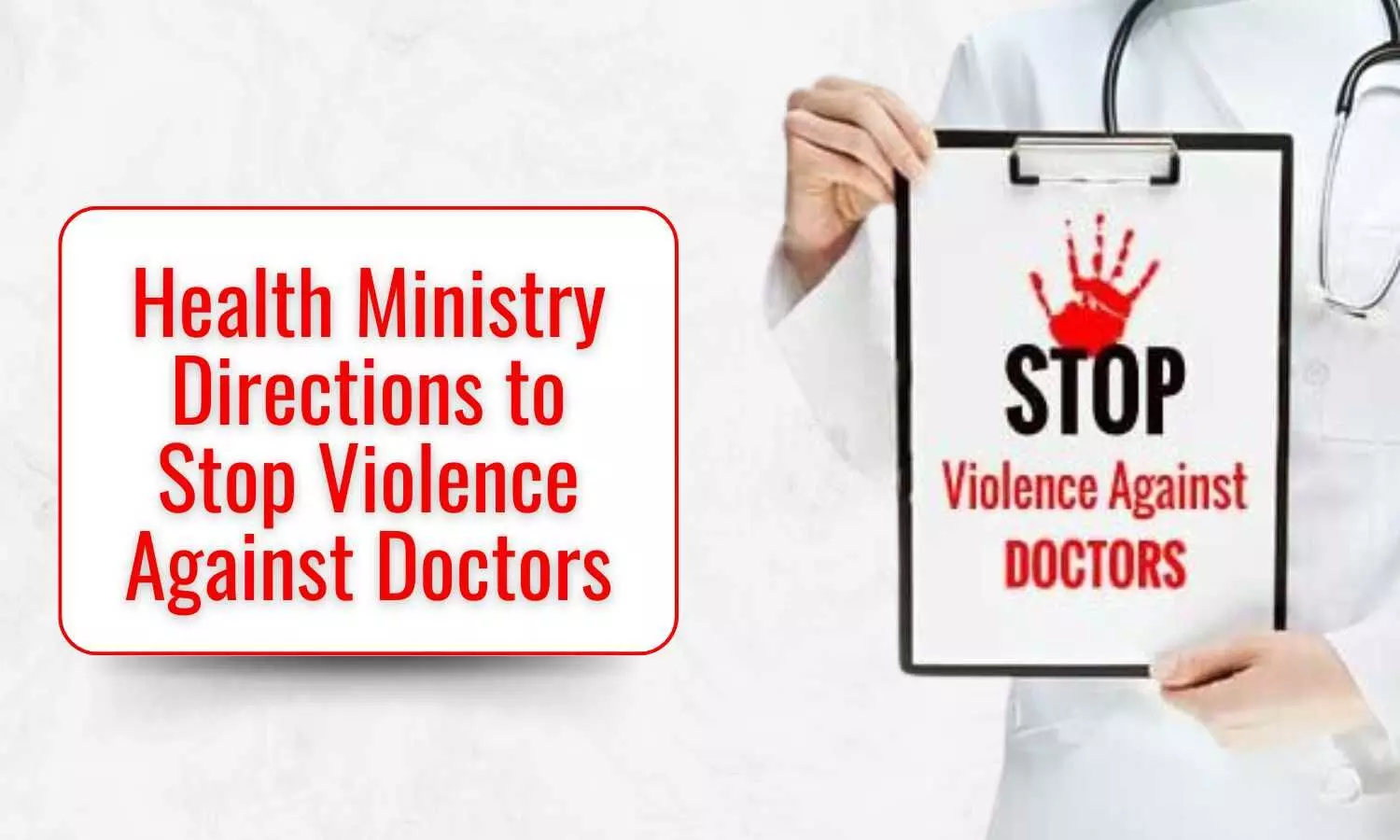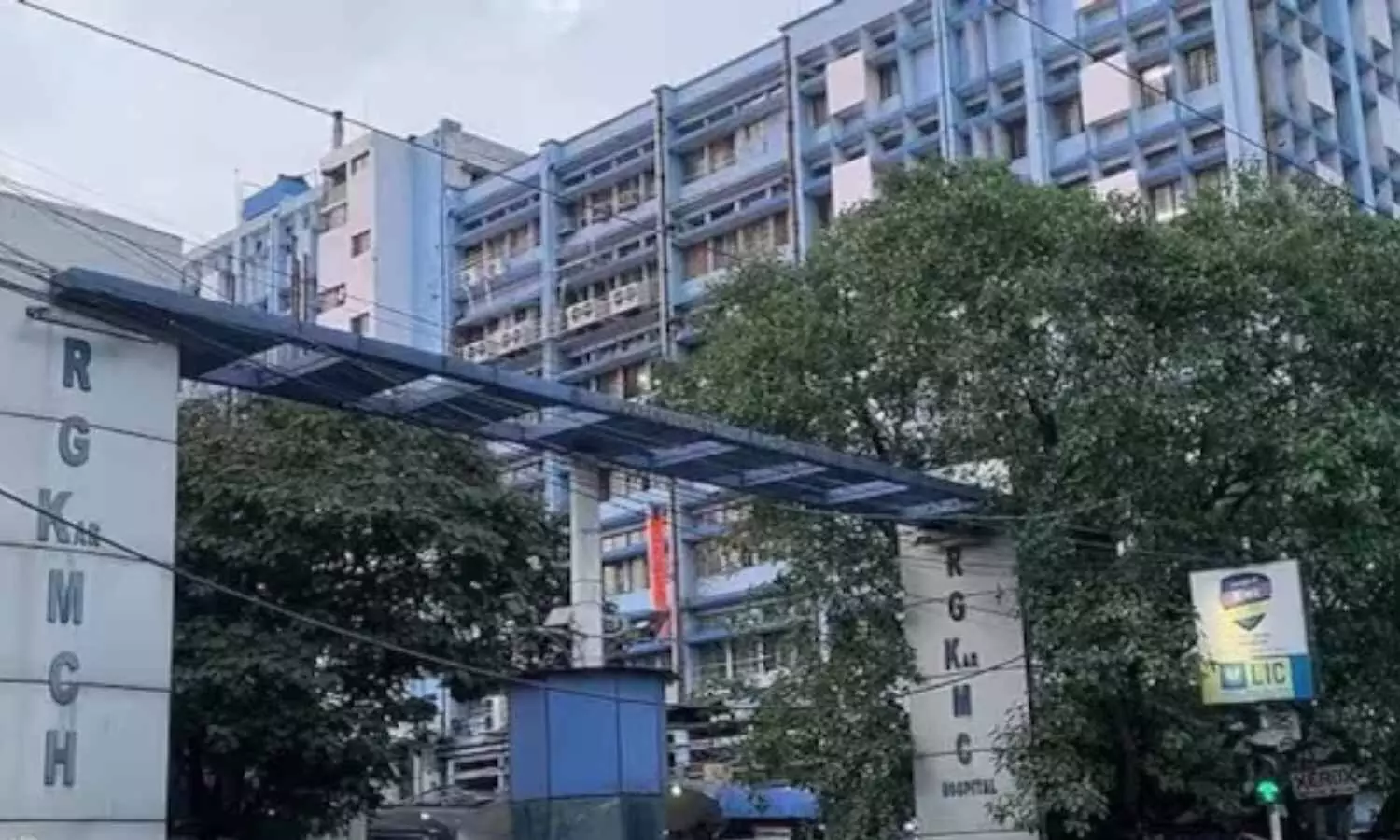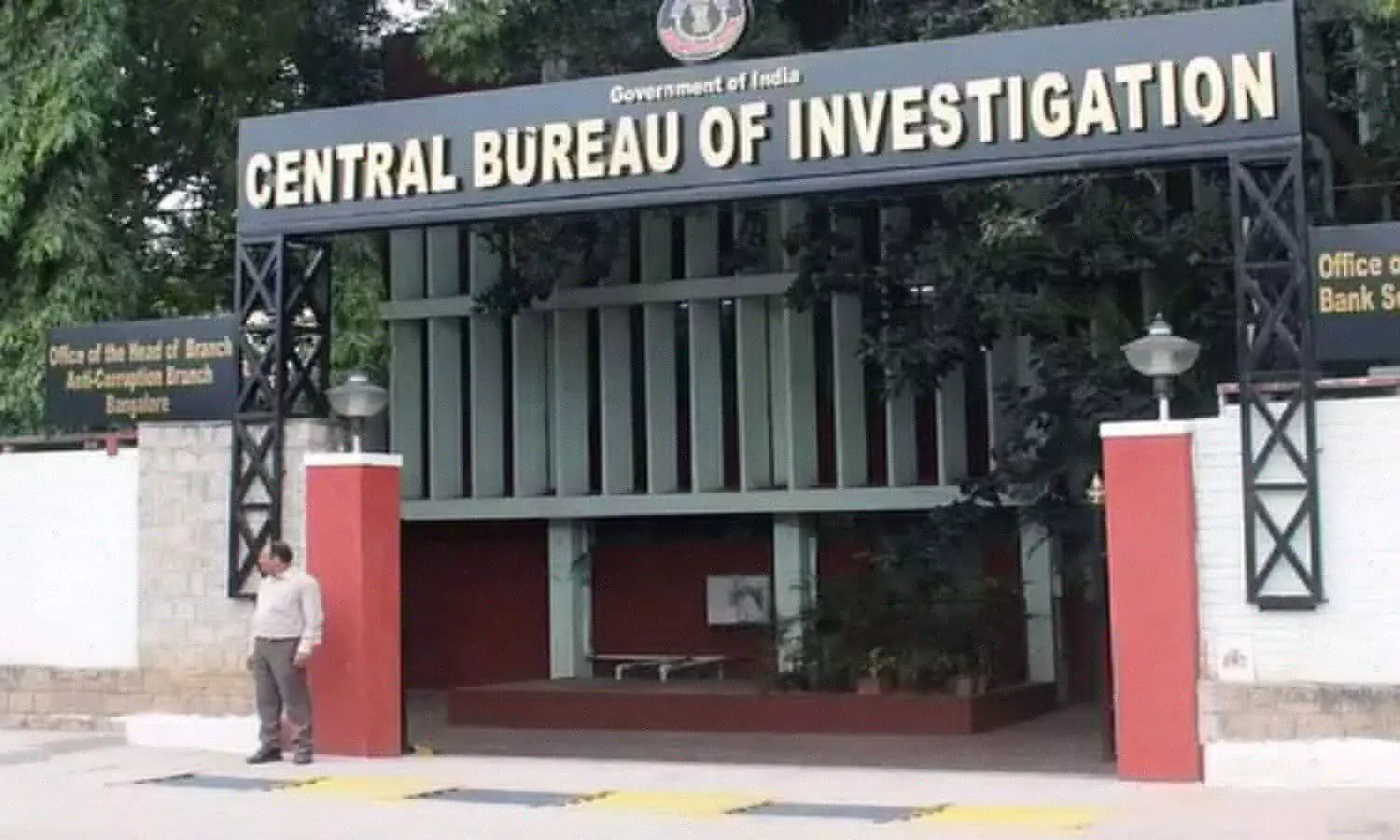Targeting cancer with precision: Neoantigen vaccines show promise
Powered by WPeMatico
Powered by WPeMatico
Powered by WPeMatico
Powered by WPeMatico
Powered by WPeMatico
Powered by WPeMatico

New Delhi: Amid the massive outrage and protests by doctors across the country demanding safety at their workplace, the Union Ministry of Health and Family Welfare has issued several directions to the Heads of all Central Government Hospitals/Institutes to ensure safety and security of doctors and healthcare workers.
These measures, recommended by the Ministry, include installing sufficient numbers of High-resolution CCTV cameras, employing adequate number of well-trained security guards, setting up control rooms at the institutes, identification badges for staff, patients, visitors, restricting access to certain areas, identifying dark spots in the campus, well-secured duty rooms with basic amenities etc.
Further, the Ministry has recommended that lady health professionals should be deployed at night, preferably in more than one number and they should be escorted to premises while on duty and arrangements should be made for their transport or movement at night as well.
Writing to the Heads of all Central Government Hospitals/Institutes, AIIMS/INIs on 19.08.2024, the Health Ministry highlighted how Central Government hospitals are more permeable to public making it easier for unauthorized individuals to enter freely.
“It has been evidenced for a long time that Government hospitals are more permeable to public compared to private facilities, making it easier for unauthorized individuals to enter freely. While accessibility is important for providing care, it can also pose security risks. Hospitals sometimes become targetted by acts of violence, including assault on staff, which can be related to disputes, dissatisfaction with medical care, or external criminal activities. Ensuring safety of healthcare professionals is vital. Violence or harassment against staff can disrupt operations and affect quality of care provided to patients. Patient rush increases potential for conflicts and security breaches. Addressing these concerns requires a comprehensive approach to security that balances accessibility with effective measures to protect patients, staff and integrity of the facility,” the Ministry mentioned.
In view of these challenges in ensuring security in government hospitals, the Health Ministry has issued directions to the central government hospitals/institutes to take these following appropriate action to address the security issues in the institutes:
i. Proper Display of relevant penal provisions of the State legislation to prevent violence against health care workers in Hospital premises.
ii. Sufficient number of High-resolution CCTV cameras to be installed at strategic locations including entrances, exits, corridors, dark spots and sensitive areas. A control room should be setup in the Institute for quick response to an emergent situation. In the Control Room one admin staff should always be stationed along with security persons .
iii. Employment of adequate number of well trained security guards for proper monitoring / patrolling/surveillance of the premises.
iv. Entry and exist should be strictly monitored to allow entry to authorized personnel only. Identification badges for staff, patients, and visitors may be issued for easy identification of authorized personnel. Display of I Card by all Hospital Staff while on duty be made mandatory . Appropriate arrangements be made to ensure that all visitors are monitored.
v . Only one or two attendants be allowed with a patient at any point in time including visiting hours and with an attendant pass only. Restricted access to certain areas may be devised.
vi. Comprehensive plans may be drawn for tackling various types of emergencies . These Plans should be regularly updated and rehearesed including conduct of periodic mock drills to train staff and security personnel for effective responses in emergency scenarios.
vii. All hospital staff, including doctors, nurses, and administrative personnel should be trained in recognizing and responding to security threats. They should equipped with appropriate skills to handle emergency situations effectively.
viii. Public address systems should be devised to quickly disseminate information during emergencies.
ix Dark spots in the campus should be mapped and adequate lighting in the premises should be ensured particulalry in the duty areas of the lady health care staff , parking lots , entryways etc .
x. Hospital Authority should ensure a coordinated response in case of incidents in close coordination with local police and emergency services. Security policies should be updated based on feedback and incident analysis.
xi.Adequate number of well secured duty rooms with basic amenities should be provided for female health professionals . Deployment of lady health professionals at night should be preferebaly done in more than one number . They should be escorted in premises while on duty and proper arrangement of secured transport should be made for them for any movement at night.
xii. Adequate number of Patient Facilitators and Patient Cooridinators to be enagged for assisting patients ,providing information and guiding the patients in the Hospitals/Institutes.
Doctors across the country are on strike following a recent incident of brutal rape and murder of a postgraduate resident at Kolkata-based RG Kar Medical College and Hospital. Apart from demanding justice for the deceased doctors, the doctors and healthcare workers across India are also demanding proper measures to ensure their safety at their workplaces.
To view the letter, click on the link below:
Powered by WPeMatico

Kolkata: The father of the Kolkata postgraduate medico who was raped and murdered at R G Kar Medical College Hospital, Kolkata has chosen not to disclose specifics about his conversation with the Central Bureau of Investigation (CBI).
The father of the deceased doctor said, “It is not lawfully appropriate to give details on our conversation with the CBI. I can’t give you details on the questioning that has been done in connection with this case. They have recorded our statement and taken it in writing. I express gratitude to everyone, regarding the protest that has been happening across the country and world. I consider everyone who is standing with us, as my sons and daughters”, news agency ANI reported.
He further said that the CBI has assured that the accused will be arrested at the earliest.
Also Read:Man attempts to molest female doctor at Coimbatore Medical College Hospital, Doctors stage protest
“CBI has assured us that the accused will be arrested at the earliest and awarded strict punishment based on whatever we have told them…I have turned down the compensation. It will hurt my daughter if I accept money as compensation for her death. I want justice,” he added.
In response to recent developments, Kolkata police have announced the arrest of 19 individuals allegedly involved in the mob violence at the hospital.
According to an ANI report, taking to social media Kolkata Police today said, “19 arrests so far in RG Kar hospital vandalism. Five of them were identified by social media feedback. If you recognise any of the suspects from our earlier posts, kindly inform us. Thank you for your support and trust.”
On Thursday police said that a mob of between 5,000 and 7,000 people, including several individuals invaded RG Kar Hospital, attacked protesting doctors and medical students, and attempted to ransack the premises on the night of August 14.
A nationwide withdrawal of services has been announced by doctors of modern medicine starting from 6 am on Saturday, August 17 to 6 am Sunday, August 18, per the official statement released by the Indian Medical Association (IMA) on Thursday.
On August 9, a postgraduate trainee doctor was raped and murdered on duty at RG Kar Medical College in Kolkata, which has led to nationwide strikes and protests by the medical fraternity.
Powered by WPeMatico

Bengaluru: Strides Alathur Private Limited, a wholly-owned subsidiary
of Strides Pharma Science Limited has received an Establishment Inspection Report (EIR) from the U.S. Food and Drug Administration (USFDA) for its formulations facility at
Alathur, Chennai thereby successfully concluding the Good Manufacturing Practices (GMP)
inspection conducted between April 1-5, 2024.
Strides, a global pharmaceutical company headquartered in Bengaluru, India, is listed on the BSE Limited (532531) and National Stock Exchange of India Limited (STAR). The Company mainly operates in the regulated markets and has an “in Africa for Africa” strategy and an institutional business to service donor-funded markets. The Company’s global manufacturing sites are located in India (Chennai, Puducherry, and two locations in Bengaluru), Italy (Milan), Kenya (Nairobi), and the United States (New York). The Company focuses on “difficult to manufacture” products sold in over 100 countries.
Read also: USFDA approves Strides Pharma Global stomach ulcer treatment drug
Powered by WPeMatico

Kolkata: The Central Bureau of Investigation (CBI) team investigating the brutal rape and murder of a postgraduate trainee at R G Kar Medical College and Hospital, Kolkata again inspected various areas of the hospital on Monday.
The CBI has also been authorized to administer a polygraph test on the suspect currently in custody, as per sources.
Medical Dialogues team earlier reported that as the protests over the brutal rape and murder of a postgraduate medico at R G Kar Medical College Hospital in Kolkata continue, a team of the Central Bureau of Investigation (CBI) arrived on Friday afternoon to capture a detailed digital blueprint of the site where a tragic incident took place.
On August 18, the CBI conducted 3D laser mapping in the emergency ward of RG Kar Medical College and Hospital as part of their probe into the case.
The case has ignited widespread outrage and protests across multiple cities, with demonstrators calling for justice and severe penalties for those involved.
As per an ANI news report, the Supreme Court has taken suo motu cognizance of the case, with a bench led by Chief Justice DY Chandrachud scheduled to hear it on August 20.
Earlier in the day, Calcutta High Court advocates held a protest march demanding justice for the victim and punishment for the accused.
In Delhi, doctors from Maulana Azad Medical College and resident doctors from the Northern Railway Central Hospital protested outside Nirman Bhawan, demanding justice for the victim.
Similar demonstrations occurred in Chandigarh, where PGIMER doctors also protested. Mumbai saw protests at Azad Maidan organised by doctors and locals.
In Lucknow, Uttar Pradesh, doctors and medical students from King George’s Medical University tied ‘black Rakhi’ to demand justice in the Kolkata rape-murder case.
In Kolkata, female police personnel tied Rakhi to doctors and medical students who were demanding justice in the case.
On August 18, football fans protested near Salt Lake Stadium, resulting in the cancellation of the Durand Cup match between Mohun Bagan and East Bengal. In Kolkata, junior doctors and students continued their protests at RG Kar Medical College and Hospital.
The postgraduate trainee doctor was found dead in the seminar hall of RG Kar Medical College and Hospital on August 9.
On August 14, the protest site and hospital campus at RG Kar were vandalised by a mob, leading to police intervention.
To maintain law and order, Kolkata police have imposed Section 163 of the Bharatiya Nagarik Suraksha Sanhita, 2023 (formerly Section 144 of the CrPC), around the Medical College and Hospital for seven days, effective from Sunday (August 18) to Saturday (August 24), news agency ANI reported.
Powered by WPeMatico

A new study by Rachel Lampert and team found that patients with long QT syndrome could engage in strenuous activity without developing an excess of cardiac events. The findings of this study were published in the journal of Circulation. It is uncertain if ventricular arrhythmias are more likely to occur in people with congenital long-QT syndrome (LQTS) who are receiving treatment. Thus, this study was to determine if intense exercise had an effect on the ventricular arrhythmias of people with long QT.
From May 2015 to February 2019, the participants with phenotypic or genotypic LQTS from 37 locations across five countries were prospectively enrolled in the LIVE-LQTS research (Lifestyle and Exercise in Genetic Cardiovascular Conditions), which was supported by the National Institutes of Health. For 3 years, participants (or their parents) responded to questionnaires on clinical occurrences and physical activity every six months. The follow-up was finished in February 2022. Over 60 hours a year at ≥6 metabolic equivalents was considered vigorous exercise. The composite end point of sudden cardiac arrest, sudden death, ventricular arrhythmia treated with an implanted cardioverter defibrillator, and probably arrhythmic syncope was determined by a blinded Clinical Events Committee. For people with insufficient follow-up, vital status was determined by a search of the National Death Index.
Of the 1413 participants, 13% were under the age of 18, 25% were between the ages of 18 and 25, 67% of the study cohort were female. Also, 25% had implanted cardioverter defibrillators, 90% were genotype positive, and 49% had LQT1 where 91% received treatment with beta-blockers, left cardiac sympathetic denervation, or implanted cardioverter defibrillators. 52% of the participants were engaged in vigorous exercise, 50% of which was competitive.
The composite end goal was encountered by 37 people and the total event rates at 3 years were 2.6% in the vigorous group and 2.7% in the non vigorous exercise groups. When comparing the vigorous group to the non vigorous group, the initial hazard ratio for event experience was 0.97 (90% CI, 0.57–1.67), whereas the adjusted hazard ratio was 1.17 (90% CI, 0.67–2.04). In any group or subgroup, neither strenuous nor non vigorous exercise was found to be superior. Overall, the people with phenotypic or genotypic LQTS who were risk assessed and treated at experienced institutions had low rates of LQTS-related cardiac events.
Reference:
Lampert, R., Day, S., Ainsworth, B., Burg, M., Marino, B. S., Salberg, L., Tome Esteban, M. T., Abrams, D. J., Aziz, P. F., Barth, C., Behr, E. R., Bell, C., Berul, C. I., Bos, J. M., Bradley, D., Cannom, D. S., Cannon, B. C., Concannon, M. A., Cerrone, M., … Ackerman, M. J. (2024). Vigorous Exercise in Patients With Congenital Long-QT Syndrome: Results of the Prospective, Observational, Multinational LIVE-LQTS Study. In Circulation. Ovid Technologies (Wolters Kluwer Health). https://doi.org/10.1161/circulationaha.123.067590
Powered by WPeMatico
